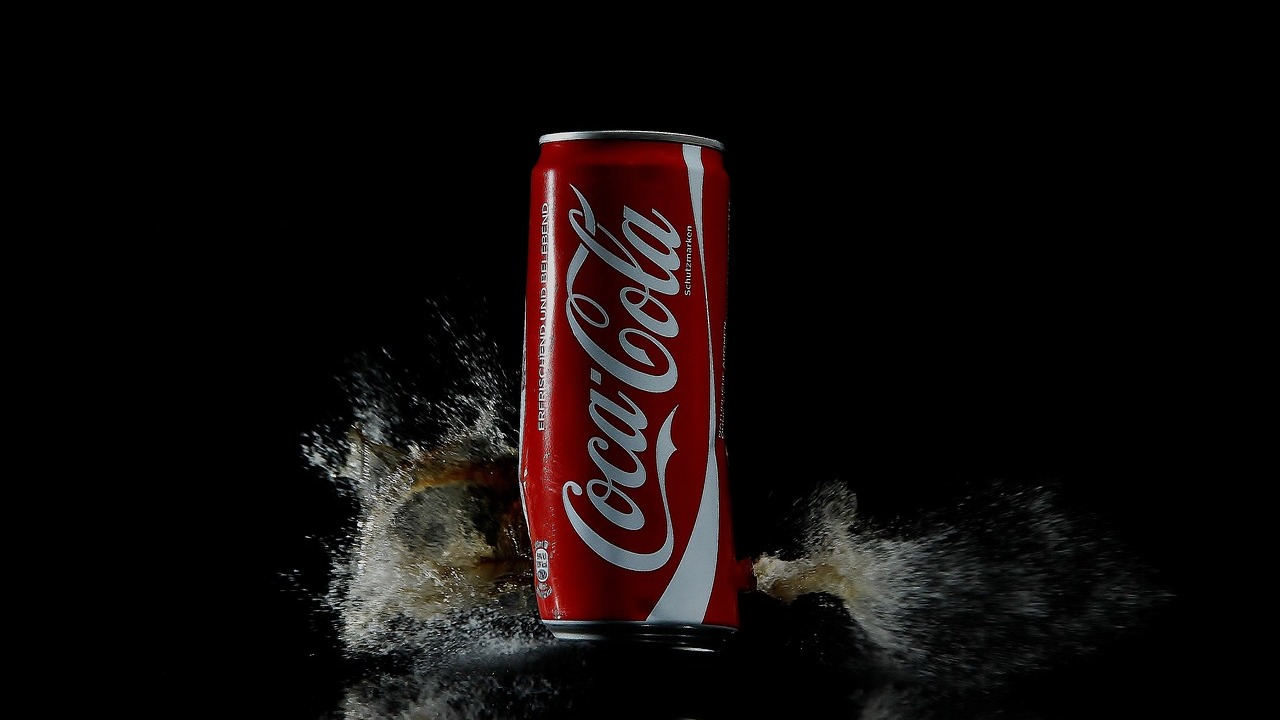Introduction
https://clicpagado.blogspot.com/2024/04/coca-cola.htmlbeverage to become a cultural icon. Its legacy spans over a century, from its humble beginnings in Atlanta, Georgia, to its current status as a global leader in the soft drink industry. This article explores the fascinating history, innovations, marketing strategies, and impact of Coca-Cola on global culture.
1. The Birth of Coca-Cola: A Tale of Innovation
The story of Coca-Cola begins in 1886 when Dr. John Stith Pemberton, a pharmacist in Atlanta, Georgia, created a unique medicinal tonic that he believed could cure various ailments. Initially marketed as a remedy for headaches and fatigue, the drink was sold in small quantities at local soda fountains. Pemberton’s formula included coca leaves and kola nuts, which inspired the name “Coca-Cola.” However, it wasn’t until businessman Asa Candler took control of the company in the 1890s that Coca-Cola transformed from a medicinal tonic into the refreshing soft drink we know today.
2. Coca-Cola’s Growth: From Local to Global
Under Candler’s leadership, Coca-Cola’s success skyrocketed. By the early 20th century, Coca-Cola was being sold across the United States. The brand’s iconic contour bottle, introduced in 1915, set it apart from competitors and became an essential element of Coca-Cola’s identity. The company’s efforts to standardize its production and distribution helped it expand to international markets.
3. The Power of Coca-Cola’s Marketing
Coca-Cola’s marketing strategies have played a pivotal role in its global dominance. The brand’s focus on creating emotional connections with consumers has been a key component of its long-term success. Coca-Cola’s advertisements have evolved over the decades, from simple print ads in the early 20th century to groundbreaking television campaigns in the 1950s. One of its most memorable campaigns, “The Pause That Refreshes,” emphasized the emotional experience of drinking Coca-Cola, rather than the product itself.
The introduction of the Coca-Cola polar bears in the 1990s, and its association with Christmas through the iconic “Holidays Are Coming” campaign, further strengthened the brand’s cultural ties. The “Share a Coke” campaign, which personalized bottles with names, also became a massive success in the 2010s.
4. Coca-Cola and Innovation: Adapting to Change
Coca-Cola has continuously adapted to changing consumer tastes and trends. In response to the growing demand for healthier beverage options, the company expanded its product line to include Diet Coke, Coca-Cola Zero Sugar, and various other low- or no-calorie alternatives. Coca-Cola also ventured into bottled water, energy drinks, and fruit juices with brands like Dasani, Powerade, and Minute Maid.
In the 21st century, Coca-Cola has embraced new technologies, such as digital marketing and artificial intelligence, to better connect with its audience. The brand has also focused on sustainability initiatives, aiming to reduce its environmental impact and improve its packaging and recycling systems.
5. Coca-Cola’s Role in Global Culture
Beyond being a beverage, Coca-Cola has become deeply intertwined with global culture. The brand’s association with happiness, celebration, and shared experiences has made it a part of major life events such as parties, family gatherings, and holidays. Coca-Cola’s presence at sporting events, such as the FIFA World Cup and the Olympic Games, further solidifies its position as a global symbol of joy and refreshment.
Coca-Cola’s influence on popular culture is also significant. The brand has been featured in numerous movies, TV shows, and music videos, cementing its place in the fabric of everyday life.
6. Coca-Cola’s Corporate Social Responsibility (CSR)
As Coca-Cola has grown, so has its commitment to corporate social responsibility (CSR). The company has made significant investments in community programs, education, and health initiatives. It has also addressed environmental concerns, focusing on water conservation, reducing carbon emissions, and creating sustainable packaging solutions.
Coca-Cola’s partnerships with organizations such as the World Wildlife Fund (WWF) and the United Nations Global Compact demonstrate its dedication to making a positive impact globally.
7. The Controversies Surrounding Coca-Cola
Despite its success, Coca-Cola has faced several controversies over the years. One of the most notable was the 1985 introduction of “New Coke,” a reformulated version of the classic drink that was met with backlash from loyal customers. Coca-Cola quickly reverted to its original formula, but the episode highlighted the challenges of maintaining brand loyalty in a competitive market.
Coca-Cola has also been criticized for its role in promoting sugary drinks, particularly in light of rising concerns about obesity and public health. In recent years, the company has worked to shift focus toward healthier beverage options to address these concerns.
8. Coca-Cola’s Future: Innovation and Sustainability
Looking ahead, Coca-Cola continues to face the challenges of an evolving marketplace. As consumer preferences shift towards healthier options and sustainability becomes a key issue, Coca-Cola is focusing on creating products that meet these demands. The company is also investing in new technologies, such as e-commerce platforms and personalized marketing strategies, to stay relevant in a fast-changing digital landscape.
The brand’s commitment to sustainability, particularly in terms of packaging and water stewardship, will play a critical role in its future. With increased pressure from both consumers and regulators to address environmental concerns, Coca-Cola is taking steps to ensure it remains a leader in both the beverage industry and corporate responsibility.
9. Conclusion: A Legacy That Continues to Refresh
Coca-Cola’s success story is one of innovation, marketing genius, and cultural influence. From its early days as a medicinal tonic to its status as a global icon, Coca-Cola has demonstrated remarkable resilience and adaptability. The brand’s commitment to sustainability, health, and innovation will likely define its future as it continues to refresh the world for generations to come.




